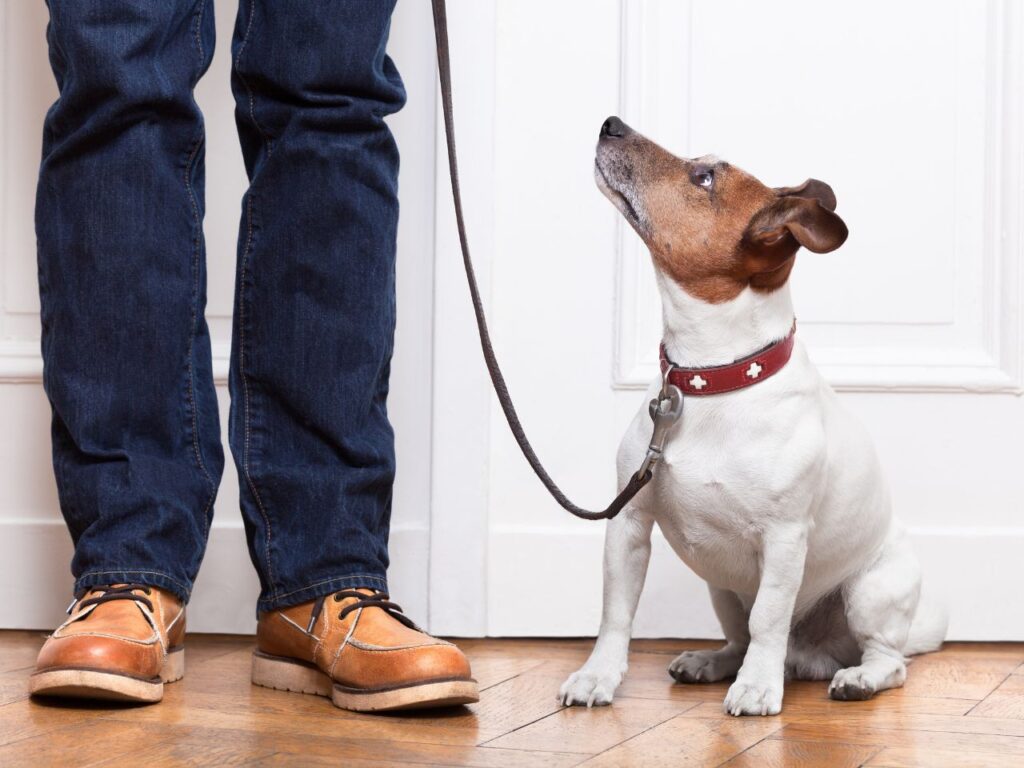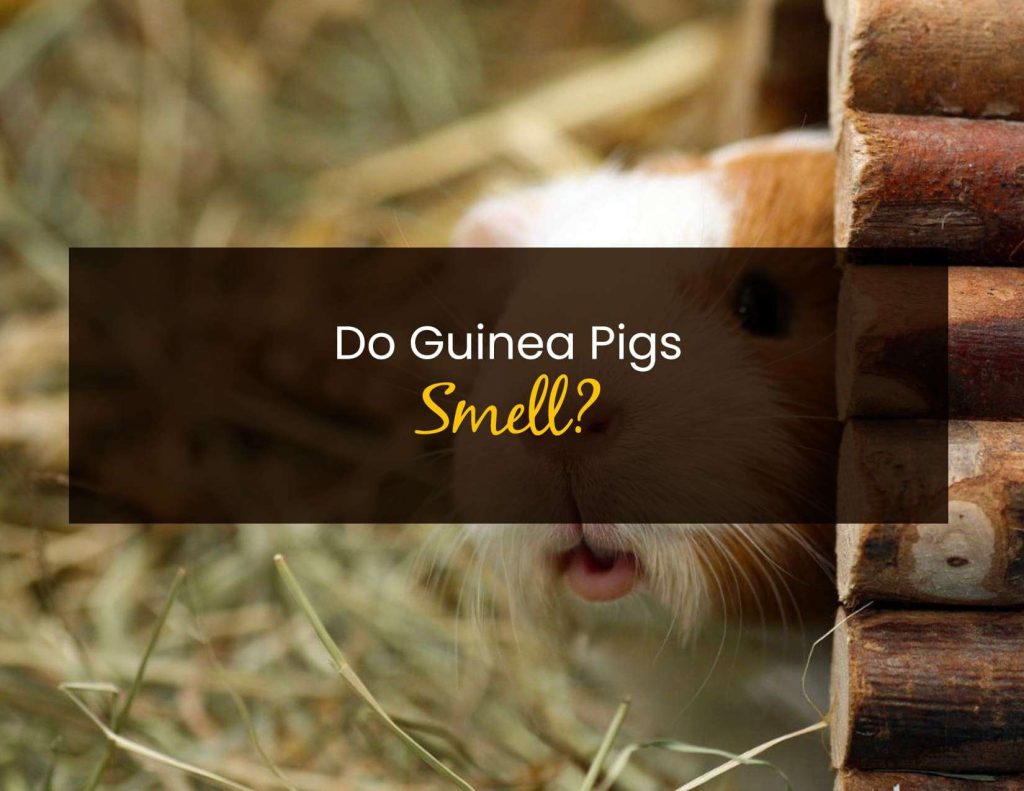Seeing your puppy repeatedly licking and chewing his paws can be frustrating, especially if it’s causing damage to their skin and fur. Regardless of how much you love your dog, this process creates an irritating sound that will surely annoy you over time. Although this is typical of puppies, as a pet parent, you definitely want to put an end to it! So the big question is, why do puppies bite their paws? And should you let them?
In this article, we will discuss why puppies bite their paws and other information about puppies biting paws.
Puppies are known for biting, chewing, and licking their paws. It is part of their grooming behavior and is fairly common and acceptable. There’s nothing to worry about if your dog licks for the purpose of cleaning every now and again. However, keep in mind that this is only normal behavior when it doesn’t go overboard. Too much of anything is never healthy, and it usually is caused by other problems or health conditions.
Let us explain some of the most common reasons dogs chew their paws excessively and share a few tips on how to handle it below.
Sudden vs. Chronic Paw Biting and Licking
The reasons why a puppy bites or licks its paws can be divided into two categories: sudden and chronic.
Sudden biting and licking is usually a reaction to an immediate problem that your puppy has never encountered before. This is usually the first indication of an underlying issue. The sudden urge of your puppy to bite and lick his paws more than he normally does needs to be resolved right away.
Chronic paw gnawers and lickers usually begin as sudden paw gnawers and lickers. A mere reaction to an immediate problem from pain, injury, illness, allergies or stress-induced anxieties. However, as a result of a variety of factors ranging from neglect to abandonment to an inexperienced pet owner, this initial reaction grew into chronic biting or licking.
Sudden Paw Biting
Cuts

Cuts are typical in puppies who are extremely active. It is most common for puppies to get cut while playing in bodies of water, particularly when stones, wire, or glass can’t be seen or avoided. Puppies that are only biting and licking one paw or one area are most likely initiated by an injury in that same area.
What to do:
- After your dog has arrived from outside, clean his paws.
- Check their paws for any strange items before letting them go.
- Consider using dog booties on days that are exceptionally hot or chilly.
- Take care of minor wounds with basic first aid. If your puppy’s condition does not improve, take him to the veterinarian.
Loose/Broken Claws

© AusEmWes
It is very easy for a puppy’s claws to bend or break during daily activities if they become caught. It can be caused by carpet threads, upholstery fibers, grass roots, and other surfaces. Your pup can also have broken claws if he is fond of jumping from a chair or a porch and he accidentally falls on a toe in such a way that the nail bends back and breaks. Most of the time, a puppy’s broken claw only breaks on the base but doesn’t fully detach. This can cause irritation and may cause your puppy to start biting and licking his claw to soothe the pain.
What to do:
- Trim your dog’s nails on a regular basis.
- Remove the portion of the nail that has been damaged. (Ask your veterinarian how)
- Use antibiotic ointment to protect the wounded claw from infection.
Parasite

© Lynne Miller
If your dog is infected with a parasite such as mange or fleas, their paws may become itchy, prompting them to lick and bite their paws. Especially annoying are flea bites, which cause your dog to itch and scratch for long periods of time. Flea bites and mange spots, which are caused by mites, should be checked for on your dog regularly especially when they are still young. Look for flea droppings (black dots on the skin) and flea nits or eggs (small white specks on the fur) to see if your pet has fleas.
What to do:
- Treat the mother with flea treatment while the puppies are still with their mothers. The puppies will also be protected from fleas as a result of the close contact and suckling between mother and pup.
- After 7 weeks, puppies can be treated with flea treatment.
Dry Skin

Dogs can develop dry skin, just as humans. This could be caused by the chilly winter weather or lack of fatty acids in your dog’s diet. Over-bathing, which depletes hair’s natural oils, is another prevalent cause. Dry skin itch will be too much for young puppies to bear, causing them to scratch it all day and night. Scratching causes skin cuts and bleeding, which can lead to even more serious skin problems.
What to do:
- Use moisturizing shampoos for pups, such as ones containing aloe or tea tree oil.
- Use an oatmeal rinse if your puppy has dry skin.
- Brushing the coat is one of the most effective techniques to keep pups’ skin from becoming dry.
- Keep your puppy hydrated at all times.
Chronic Paw Biting
Interdigital Cysts
Interdigital cysts are painful, limp-inducing, and unpleasant lesions that develop between your dog’s toes. They’re most common on the front paws and can be caused by a variety of skin disorders. Allergies, excess weight, poor foot conformation, mites, ingrown hairs or other foreign bodies, yeast infections are just a few examples.
What to do:
- It is best to have them checked by a veterinarian to determine a diagnosis and avoid any possible infection. Common treatments recommended by experts are residual topical rinses and shampoos, antibiotics, anti-inflammatories, and even surgery.
Bacterial Infection/Pyoderma

© Anthony Yu, V.A.D.E.R Clinic
It’s not uncommon for a bacterial infection to develop on a puppy’s paws due to dampness. Redness around the paws and sometimes on the paw pads themselves is common in affected canines. Flea infection, allergic response, untreated wounds, and poor grooming are all common causes of bacterial skin infection on puppies.
Bacterial skin infection is not a life-threatening condition, but it can cause your dog a great deal of discomfort and misery.
What to do:
- Bathing and grooming your puppy on a regular basis is essential.
- Wash and replace your dog’s bedding on a regular basis.
- For a thorough diagnosis and treatment, contact your veterinarian.
Contact Dermatitis
© PetAirapy
Biting and licking could indicate an allergic reaction to something that has come into contact with your dog’s paws. The most common causes of contact dermatitis in dogs is grass (kikuyu, buffalo, and couch) and succulent ground covers. Other causes of dog contact allergy symptoms include topical antibiotics (neomycin), vehicles used for topical preparations (propylene glycol), shampoos (chlorhexidine), flea products, carpet deodorisers, and metals.
What to do:
- Contact your vet to get a correct diagnosis for your puppy.
Yeast Infection

© PetCoach
A yeast infection happens when a puppy’s body contains an excessive amount of yeast. Because yeast flourishes in a moist environment, it can be found in places like the ears, paws, armpit, groin, and even the folds of a dog’s face in some breeds. A dog with a suppressed immune system is more susceptible to yeast overgrowth and illness than a healthy dog. Overactive immune systems, on the other hand, can cause allergic reactions, which can also result in yeast infections.
What to do:
- Keep your dog’s paws clean and dry at all times.
- Keep your dog inside during periods of high heat and humidity.
- If the infection is just in a small region, apply an antifungal cream directly to the affected area and cover it with a bandage.
- If you observe any signs of a yeast infection, contact your veterinarian.
Emotional and Behavioral Problems
Anxiety, fear, and sadness are common in dogs, just as they are in humans. Biting and licking helps to relieve tension, but if it becomes compulsive, it can soon escalate into a deeper health issue. The lack of enough enrichment and exercise makes dogs more prone to boredom, which can lead to destructive behavior. Certain phobias, such as those associated with loud noises or being alone, might also increase a dog’s desire to lick and bite at their own skin.
What to do:
- If you can’t figure out why your dog is licking or biting his paws excessively, consult your veterinarian.
- Purchase toys, enrichment games, and activities to give your pet something to do.
- Reduce stress triggers and employ pheromone sprays and diffusers, as well as calming treats, to address any behavioral difficulties, such as noise anxiety.
- If your puppy is left alone frequently, hire a dog sitter or a dog walker.
Should You Let Them?
No! While it’s typical for dogs to lick or chew their feet on occasion, sudden or chronic biting and licking should not be ignored. Paw biting and licking, especially if it occurs suddenly, should be handled by your veterinarian as soon as possible. Especially if the behavior is accompanied by symptoms such as limping, sores and bleeding, swelling and redness, or any evidence of infection such as odor and drainage. Definitely, the behavior should be taken seriously.










